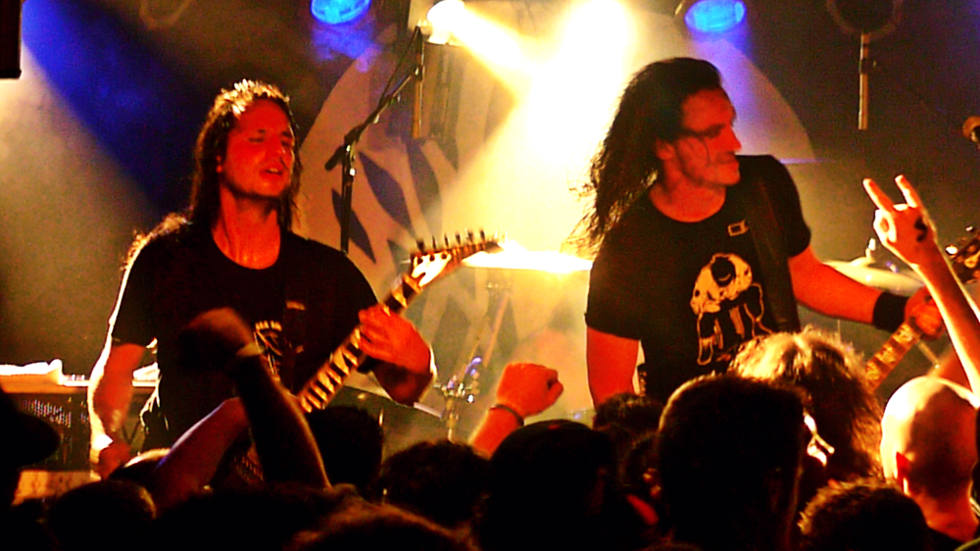
by Alissa Ordabai
– Senior Columnist —
Joe Duplantier: “We are not a rock’n’roll band. We don’t get on stage drunk and we are not here to party.”
I am catching Gojira’s frontman Joe Duplantier in the middle of the band’s U.S. tour with Slayer which began last month and will run until November 30. It’s 7 p.m. in London and 2 p.m. in Washington, D.C. Duplantier tells me he just got up, but gallantly declines my offer to call him back in an hour. This rigor of purpose seems to define the band’s approach both to music and to daily routine. When I fish for a juicy road story, he tells me the band focuses on something else when touring: “We are not a rock’n’roll band, you know? We don’t get on stage drunk, and we are not here to party. We are on stage to do something very, very precise. We want to do something that will grab the audience and take everyone to another dimension.” Sounds ambitious, but Gojira have never denied the extent of their aspirations.
And this is how you become successful in this business these days — a long way off from the debauchery touted decades ago by the fathers of the genre. So Duplantier and I end up talking not only about creative impulses behind the band’s latest breakthrough album L’Enfant Sauvage, or pains of life on the road, but also transfigurations of metal over the last few decades. His thinks more is asked of metal bands right now, and other topics crop up as we dive deeper: music as a means to escape and to connect, the metaphysics of songwriting, and the balance between practicing and enjoying your instrument. We even end up talking about life beyond Earth. But then again, it’s this self-awareness on par with openness that give Gojira’s music its edge and a sense of mystery.
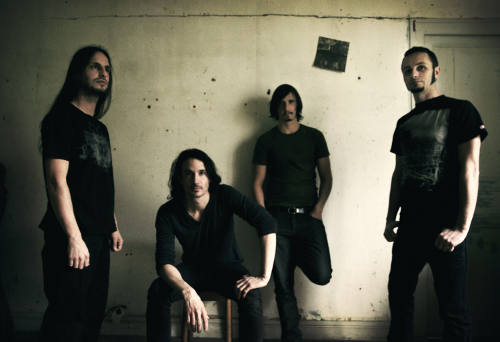 Alissa Ordabai: I am gathering that I’m catching you on the road with Slayer right now.
Alissa Ordabai: I am gathering that I’m catching you on the road with Slayer right now.
Joe Duplantier: Yes!
AO: How is it going so far?
JD: It’s going great. I was expecting that it would be something good because there are several aspects. The fact that we are opening for Slayer and they are a legendary band. And we grew up listening to Slayer, and that’s a great thing. But there is also the everyday reality. We have a crew and it’s the same crew we’ve had for a year now. We haven’t had any changes, so everything is going really smooth in our work backstage. And Slayer’s crew is also amazing. I mean, we know these guys from before. So we knew already that this tour would be a blast and it’s a blast. It’s really awesome.
AO: Do you have any highlights from being on the road that stood out over the past few years?
JD: Oh my god, I don’t know! The whole thing is like a dream. We live in a weird reality, you know? We are home for a couple of weeks and then on the road for a couple of weeks. And when we come home, it’s like two different realities, you know? Working together and being on the road is extremely hard, especially when you have a family and you have to go away, and that kind of stuff. And at the same time it’s extremely exciting. [Laughs.] So this weird combination that we have to live with is really interesting. And it’s something that evolves. With time we get used to this reality and we kind of become one: the band, the crew, the bus, the road, the audience every night. And we are getting more and more comfortable on stage and stuff. The whole thing together is a highlight. I couldn’t pick one moment. It’s all these different moments: difficult moments and great moments.
AO: Do you get time off? Do you get to explore cities and towns you play in?
JD: A little bit, yes. Sometimes. For example today we are in Washington, D.C. and we arrived yesterday. So there was like ten of us in front of the White House taking pictures. [Laughs.] Like, “Right, so this is it. Not that big.” [Laughs.] And then we went to a restaurant, walked a bit in the streets of Washington in the center.
AO: Oh, like Georgetown and things like that?
JD: Yeah! And with years there are some cities that we get to know a little bit. Like, “Oh, do you remember that restaurant we went to last time in Vancouver? Let’s go again!” We start to feel at home on the road more and more. [Laughs.]
AO: So nothing too wild going on?
JD: [Laughs.] No, as you see. As you can hear. Nothing too wild, no. What’s difficult when you spend the entire day on the bus… Just imagine 12 guys stuck in a small rectangle with wheels crossing the country? For example, we had to drive from Minneapolis to Austin, Texas, and that was 18 hours on the bus. So at the end of the day we don’t feel our bodies because you get so tired from doing nothing on the bus. It’s really weird. That’s really extreme. I know it sounds boring but it’s extreme.
AO: You once said that you do tours because it’s boiling in you. After what time does this boiling cool off? What’s the ideal length of a tour for you these days?
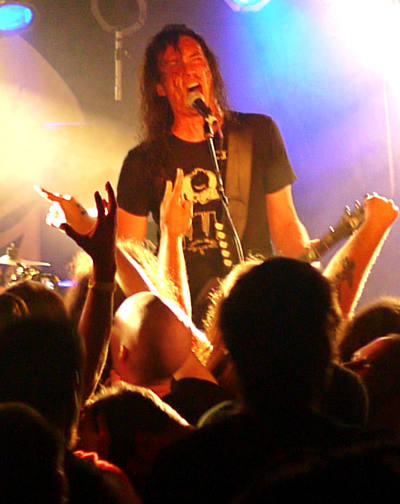 JD: It’s still boiling, you know? For example, the other day I didn’t want to get on stage, but when I put one foot on the stage I felt almost like a wild animal. There is something really primal and really animal-like that needs to express itself. And sometimes it’s something more divine and connected with the sky, as they say. [Laughs.] But there are all these parts of ourselves that need expressing. So we are still boiling, definitely.
JD: It’s still boiling, you know? For example, the other day I didn’t want to get on stage, but when I put one foot on the stage I felt almost like a wild animal. There is something really primal and really animal-like that needs to express itself. And sometimes it’s something more divine and connected with the sky, as they say. [Laughs.] But there are all these parts of ourselves that need expressing. So we are still boiling, definitely.
AO: This is something I want to talk to you about. When you go to a Gojira show it really strikes you how tight the band is and how ferociously aggressive you guys sound. And it’s quite mind-blowing. But at the same time your music has some delicate aspects to it too. When you listen to the albums, it’s a complex soundscape. There are subtleties and shades of meaning, and all sorts of things going on. So what is the secret to projecting the nuances of your music in a live situation?
JD: I don’t know really, but I think it’s like learning… You know, when you see a little child trying to walk, over the years we learn how to walk, and jump, and stand on one foot, and it’s becoming not even like a second nature – it’s nature! It’s completely part of us. And if you think about it, it’s completely amazing to be able to stand on our legs and walk. That’s how it feels for us on stage. Of course, it’s a different exercise and we have to be altogether and stuff, but I couldn’t answer that question. I’m actually never satisfied. Even if we feel like animals on stage, there is another part of us that is very concentrated and focused to do something very tight, and groovy, and perfect.
Something else that comes to my mind right now is that we are not a rock ‘n’ roll band, you know? We don’t get on stage drunk, and we are not here to party. We are on stage to do something very, very precise. I don’t know what it is, but we want to create this thing very powerful all together and we keep that in mind all the time. I think that that’s what it is – we have the same thing in mind. The four of us, we want to do something that will grab the audience and take everyone to another dimension. It’s very-very ambitious – our vision of a show – but you know what they say, “You have to shoot for the stars to get to the moon.” I think the vision we have of the show is way better than that, but that’s what we get. [Laughs.]
AO: How long is your set on this tour? How many songs do you get to play?
JD: It’s 45 minutes.
AO: Oh, wow!
JD: We try to keep it 44 to make sure we don’t cross the line. And it’s good. We like 45.
AO: 45 is amazing. This is wonderful.
JD: Yep. Well, we have the main support slot, so main support is sometimes 45. It’s good, it’s very good.
AO: Very generous of Slayer.
JD: Yes, absolutely.
AO: When you were growing up, was touring with bands like Slayer one of your goals?
JD: I remember at first I just wanted to play. And play Metallica songs, and Sepultura songs… We were not even dreaming of being a professional band. But when we started to play shows in local clubs and stuff, right away we started to dream about that kind of stuff. So as a band we grew up hoping for big bands like Metallica and Sepultura, and that’s what’s happening now. It’s pretty amazing. [Laughs.]
AO: Did you have any other heroes when you were a teenager apart from heavy metal musicians?
JD: Martin Luther King, Gandhi… I was really impressed by the Dalai Lama. At a young age I was impressed, and I knew that these people were more important than anybody else. As people who have a vision that humanity has a chance to live together. I guess I was shocked by violence, and competition, and misunderstandings, and all those things I was confronted with in school. So these were my heroes besides James Hetfield and Max Cavalera.
AO: So when you were just learning to play the guitar, did you see music as a way to escape from everyday realities? Or a way to connect with the outside world, to reach out?
JD: You know, that’s something I would have to think about now. Because you know, when you are in the middle of something, you don’t really analyze it. You don’t have the distance on the situation. I was just obsessed, you know? Obsessed with music. It was an obsession. So I believe yes, it’s probably a way to escape the misery of everyday life. [Laughs.]
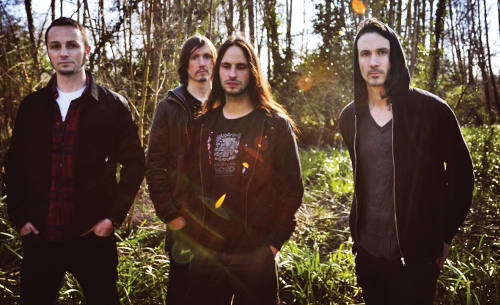 AO: [Laughs.] And the boredom of it.
AO: [Laughs.] And the boredom of it.
JD: The routine. I had a very hard time in school dealing with people, with other kids. So for me music was my life.
AO: But it’s funny how it happens. First you use it as a means to escape, and then it connects you with the outside world. The paradox of it is fascinating.
JD: Absolutely. And I’m connected to the outside world in a very strange way, you know? I’m a part of a tribe. I’m on this bus, I’m touring the world, and we become a family. I feel connected very strongly with these guys. And other crews. For example, the Slayer crew. There is a friendship is going on, and the crowd is something else. So it’s interesting.
AO: Do you write on the road?
JD: Yes, we do. On this tour we are working on new ideas, new riffs, and new structures. We spend so much time on the road now that we have to organize things in a different way. Because when we go back home we are with our families and we need to forget about the band a little bit. When we are on the road, when we have an hour (or two hours) somewhere, we gather on the bus and start writing. This is pretty new. We’ve realized that we have to do it now, so we are doing it.
AO: How does songwriting work in Gojira in general? Do you get together in a room and start bouncing ideas off each other, or do you work on stuff at home and then bring it to the table?
JD: In the best scenario we are all in a room with our instruments and we are jamming. What’s happening now is that we are sitting on a couch in front of a computer throwing ideas and talking about these ideas. So it’s a different approach but I can’t wait to be in a rehearsal room with my bandmates and to jam. Because that’s I think how you write the most powerful things – when it’s continuous and organic. That’s what we do usually. Now we try to create riffs and atmospheres on the bus, and we have some great stuff coming, but the best is to be the four of us in a room.
AO: How long does it typically take for you guys to go from the initial snippet of an idea for a song to complete harmony and complete melody?
JD: It’s interesting because it can take a day, or it can take 4 months. There is no set time frame for that, so it can get frustrating. Like, “Let’s write a song NOW!” and it won’t happen. And sometimes when we are jamming without thinking about it, boom — there is a song. It really depends. Even after 20 years of doing it, it’s still a mystery.
AO: Inspiration visits you whenever it wishes, haha!
JD: Exactly. And things like these songs already exist, it’s just about capturing them. They are somewhere in the air. It’s the matter of getting together and to allow the songs to happen.
AO: Wow. But you play rhythm guitar and you sing in this band. So I want to ask you this: does playing at the same time as you sing put any limitations on your singing? Or does it help your singing? To put it in other words, would you be a different kind of vocalist if you didn’t have to play?
JD: Yes, absolutely. I really think so. Playing and singing at the same time is one effort, one thing. It’s a physical thing. I remember struggling in the beginning, and then it clicked. I was able to do it. When I’m in the studio and I have to sing, it’s very disturbing at first. I remember on the first album I used to take my guitar with me and play even though I was not recording the guitar. But I needed to have my guitar with me to be able to sing. It’s 50 per cent singing and 50 per cent playing, but it becomes one thing. So it is different, absolutely.
AO: When you are at home between tours, do you practice the guitar every day?
JD: I actually don’t really practice, but I play every day. Sometimes for five minutes, sometimes for two hours. But I always want to grab the guitar and play a little bit. I never really force myself to practice unless we are going on tour, and we were off for a couple of months, and I’m really rusty, and I need to practice again. But I’m not a guitar hero. I don’t play solos. I believe that if I was doing that, I’d be practicing a lot more. I’m a little lazy when I’m off tour. [Laughs.] But if I was practicing, I’d be able to play better, for sure. And more ambitious riffs and stuff. I don’t feel like practicing too much. I like to keep it exciting for me when I grab the guitar. There is always something new, it’s always challenging for me.
AO: So you play a lot for your own enjoyment?
JD: Exactly. Absolutely. And a lot of the time when I play for myself, it would be very calm melodies, and I try to play beautiful notes. And I use those things on the albums for intros, outros, and atmospherics. This is one aspect that I think is very important in our music. It’s not just blastbeats and patterns all the time, there is also a more atmospheric aspect that I dig a lot when I’m off tour playing an acoustic guitar.
AO: How many guitars do you have with you on this tour?
JD: On this tour I have 5 guitars.
AO: What is your main guitar?
JD: My main guitar is a signature model. It’s a Charvel. I work with Charvel and we are creating a custom model for me.
AO: Is it a prototype you are playing now?
JD: Yes, a prototype. I have two of them. One that I built with these guys last year, and I did some changes – the scale, the shape of the head, the pickups, and all that, so I have a new prototype now which I received before this tour, and I was very excited. I am going to change a few things and then I will be ready to release my Charvel signature model.
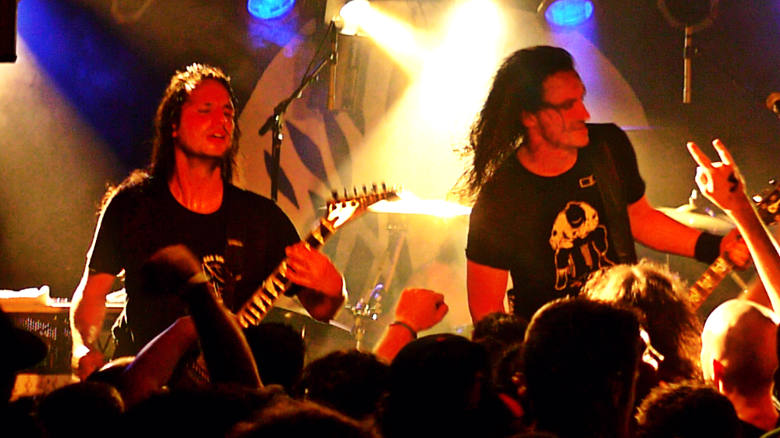
AO: When do you expect that to happen?
JD: I don’t know really. It takes a lot of time for me to be sure what I want. And I have to imagine something – maybe the neck is a bit thick, or maybe the pickups should be different… And then for them it also takes a long time to build it. I would say within a year, but I am not sure.
AO: That would be exciting. Do you get to design how it looks in terms of shape?
JD: Everything. The wood, the paint, where I put things, the kind of bridge I want, the pickups are custom, which is really amazing, the shape, the scale, everything. It’s built from scratch. This is also something I did not expect to do one day when I started with music – to have my own signature guitar. It’s insane. I can’t believe it!
AO: It’s like every boy’s dream, isn’t it?
JD: Absolutely.
AO: Do you think being a metal musician has changed in any fundamental way since the time when you were growing up? Not in terms of recording technique or distribution, but in terms of pure craft? Do you think more is expected of heavy metal musicians or less these days?
JD: Probably more. I would say more because when heavy metal first appeared, people were amazed or shocked by this genre. Like, “Oh my god, this guy is screaming!” Or, “Oh my god, he’s going so fast!” For sure, when the first bands like Black Sabbath and Metallica started playing heavy metal, people were surprised. Now when this is done, metal band need to come up with something new and fresh, and surprise people with something else than speed or anger. There has to be something else in the music to make the difference, I guess. Because people have already heard so many things. So probably more is expected in some ways.
AO: But also in terms of technique. A lot of musicians I’ve interviewed this year have praised Gojira to me. From your fellow countryman Christophe Godin of Morglbl to Jeff Waters from Annihilator, who said to me he finds the way Gojira’s riffing starts and stops rather mind-boggling. This was said in a context of how instrumental technique in heavy metal keeps advancing.
JD: I am honored to hear that. Yet I don’t have the feeling that we are doing anything special to improve the technique. We are using the already existing techniques. Maybe the way we put things together is kind of new. And also one thing that I think is the signature of our band is that we are not using any effects. All the weird sounds we are making are hand-made. Do you know what I mean?
AO: Yes. They sound like samples of electronica, but they aren’t. It’s all hand-made as you say.
JD: Yes, it isn’t. Well, on some songs, maybe 2 or 3 songs, we used Vocoders for the voice and that kind of stuff. But definitely on guitars each time there is a pinch harmonic reversed, a pinch harmonic, or a kind of squeal, or a strange sound we are making, it’s us using our fingers on the string and the distortion of the amplifier. But we are not using a pedal like a whammy, or a phaser. We don’t use those things. We are creating sounds with our guitars without using pedals. So I guess that would be our signature.
AO: And people are noticing. I have one last question. It’s a bit goofy, I hope you don’t mind.
JD: OK. [Laughs.]
AO: OK, let’s give it a try. If you could have an answer to any question in the universe, what would you ask?
JD: I would probably ask who built the pyramids.
AO: Who do you think built the pyramids?
JD: I don’t know. I kind of want to know if the aliens were involved at all. [Laughter.] I’d like to have a straight answer about this. I could have asked if aliens existed, but I already know they exist.
AO: Really?
JD: I mean, I already know. I never met one, but it would make sense with all these galaxies and trillions of stars in one galaxy. I wouldn’t imagine that we are alone in this universe.
AO: Do you think aliens visit the Earth?
JD: I don’t know. I’d like to think that everything is possible. I don’t have one fixed idea, but I’d like to leave this question open.
AO: Wonderful! I love this answer! Thank you for your time and good luck with the rest of the tour. Break a leg, as we say in England. And I’m looking forward to catching you on the road in Europe sometime soon!
JD: Thank you very much, it’s been interesting!

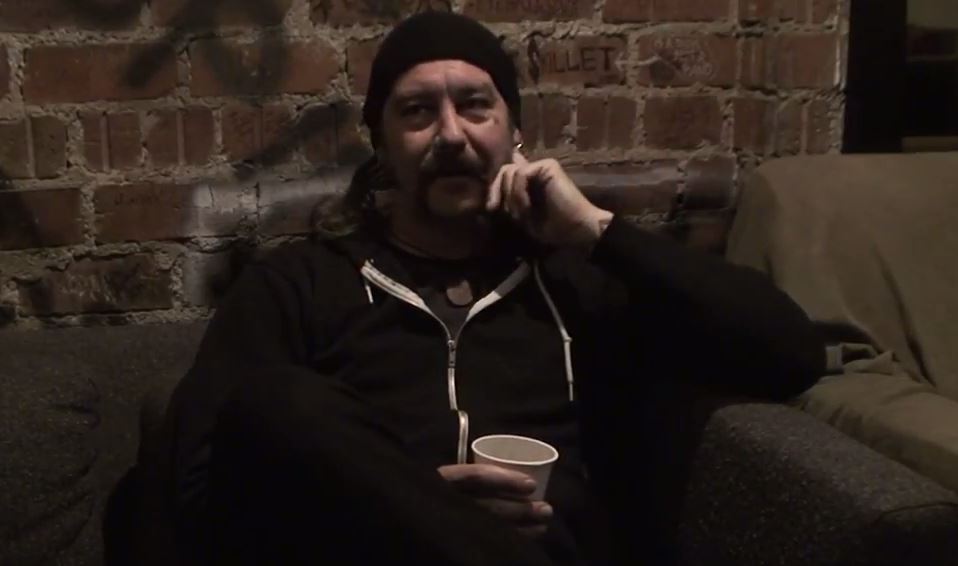
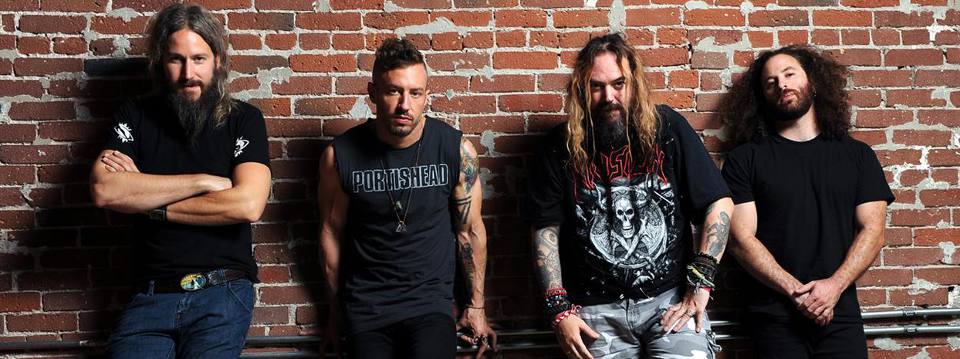

allisa this was an awesome interview you rocked